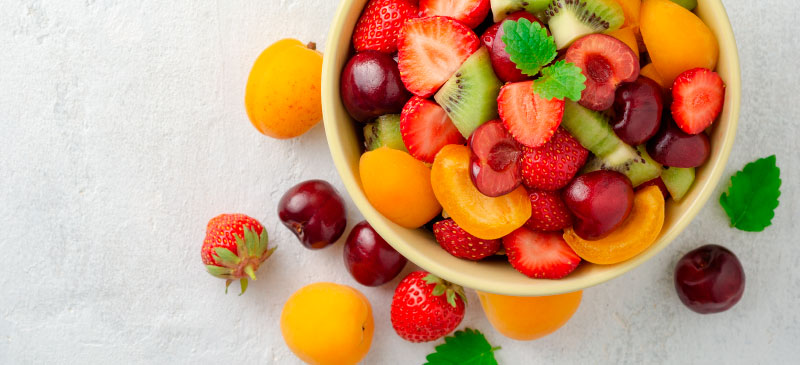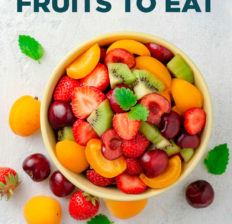This Dr. Axe content is medically reviewed or fact checked to ensure factually accurate information.
With strict editorial sourcing guidelines, we only link to academic research institutions, reputable media sites and, when research is available, medically peer-reviewed studies. Note that the numbers in parentheses (1, 2, etc.) are clickable links to these studies.
The information in our articles is NOT intended to replace a one-on-one relationship with a qualified health care professional and is not intended as medical advice.
This article is based on scientific evidence, written by experts and fact checked by our trained editorial staff. Note that the numbers in parentheses (1, 2, etc.) are clickable links to medically peer-reviewed studies.
Our team includes licensed nutritionists and dietitians, certified health education specialists, as well as certified strength and conditioning specialists, personal trainers and corrective exercise specialists. Our team aims to be not only thorough with its research, but also objective and unbiased.
The information in our articles is NOT intended to replace a one-on-one relationship with a qualified health care professional and is not intended as medical advice.
Top 20 Summer Fruits and How to Add Them to Your Diet
June 22, 2025

In the summertime, things get a whole lot more colorful, including your plates. With so many fruits and vegetables in season throughout the warmer months, it’s time to crowd those meals with fresh, delicious and nutrient-rich summer fruits.
They can be added to salads, spreads, smoothies, cocktails, sauces and desserts and are at peak flavor. These tart, sweet and juicy foods have never made it so easy to eat seasonally and keep it healthy, too.
1. Strawberries
Strawberries are one of the most well-loved fruits and during the summer months, as we get to enjoy them right off the vine. They are sweet, juicy and can easily be incorporated into recipes.
Plus, strawberry nutrition is quite impressive, offering plenty of vitamin C that will meet your daily quota with just one to two cups. Strawberries are rich in antioxidants that work as one of the body’s first lines of defense against disease.
One fun way to get in your strawberries is a strawberry lemonade mocktail.
2. Blueberries
Blueberries are considered a superfood, and for good reason. These antioxidant-rich berries help fight harmless free radicals in the body.
Because they also provide dietary fiber, blueberries can help with weight loss by moving slowly through the digestive tract and improving satiety, and they’re known to help improve glucose management and memory, too.
3. Raspberries
For many people, raspberries are a summer favorite. They are loaded in phytonutrients that provide their dark red color and health benefits.
Like most berries, raspberry nutrition has been shown to boost heart health and metabolism, while easing inflammation.
4. Blackberries
Blackberries are known as one of the top antioxidant foods, and they are rich in important nutrients, including vitamin C, vitamin K and manganese. Among the many health benefits of blackberries are their ability to boost immunity and protect the body from chronic inflammation.
5. Mango
Mango is a tropical fruit that’s described as a cross between a peach and pineapple. It provides over 20 vitamins and minerals, including vitamin C, vitamin A, vitamin B6 and vitamin E.
It also features fiber, which helps maintain healthy blood sugar levels, promote digestive health and improve satiety.
6. Papaya
Papaya is native to the tropics and grown in subtropic areas of the United States. It provides enzyme compounds that can help the body break down and use proteins properly.
Research shows that this makes papaya beneficial for digestion, and it also helps slow signs of aging (because of its vitamin C and vitamin A content), fight viral infections and boost heart health.
7. Pineapple
Pineapples are propagated year-round, but the best time of year to buy the fruit is during the spring and summer months. Pineapple is nutrient-rich, offering a good supply of vitamin C, manganese, thiamine and vitamin B6.
Studies indicate that the benefits of pineapple include its ability to boost immune system, heart and digestive health.
8. Plums
Plums are in the same fruit family as cherries and peaches, and their taste ranges from tart to sweet. Like all summer fruits, they are an excellent source of antioxidants and provide dietary fiber, allowing plums to improve satiety and help with weight loss or maintenance.
Plum benefits also include their ability to support cognitive health with its phytonutrients.
9. Peaches
Peaches are a favorite summer fruit that have a fuzzy skin and sweet, juicy flavor. They provide a good amount of vitamin C, vitamin A and potassium, and studies have shown they can help reduce inflammation.
Peaches also contain the powerful antioxidant lutein, which helps to protect eye and skin health.
10. Nectarines
Nectarines are genetically identical to peaches, but they have a smooth skin and range in color. They, too, provide antioxidants, enhance eye health and strengthen the immune system.
The nectarine is also related to pears, raspberries and apricots.
11. Apricots
This summer fruit has a tart flavor and distinct color.
Not only does it make an excellent ingredient in jams and baked goods, but apricot nutrition is also quite impressive.
It’s a good source of fiber and even provides some protein, along with vitamin C, vitamin A, potassium, vitamin E and vitamin K.
12. Cherries
There’s something about serving a bowl of cherries that reminds you of summertime.
Cherries have preventative health benefits because of their bioactive components, which include the antioxidants anthocyanin and cyanidin, along with melatonin, a molecule that has proven to be critical for regulating your sleep-wake cycle.
13. Watermelon
Watermelon is a summertime staple that’s cool and hydrating.
Perhaps the most well-known watermelon benefits are its ability to aid hydration, digestion and detoxification, being that it’s about 91 percent water, and that it helps you get rid of excess fluids in the body.
Watermelon can also help with weight loss because it promotes satiety and curbs cravings.
14. Honeydew
Honeydew is a sweet and creamy summer fruit that hits its peak season in late summer through early winter.
It contains carotenoids, including phytoene and beta-carotene, which are responsible for its anti-inflammatory and antioxidant properties.
15. Cantaloupe
Cantaloupe is one of the highest fruit sources of vitamin A, and it also provides vitamin C, vitamin K, potassium, magnesium, B vitamins and fiber.
Cantaloupe nutrition boasts beneficial carotenoids that boost immune system function and help prevent heart disease, too.
16. Kiwi
One cup of kiwi provides a huge amount of vitamin C, making it one of the most phytonutrient-rich summer fruits. Kiwi supplies 20 vital nutrients, and eating it helps counteract aging and improve skin health.
Research suggests that eating vitamin C-rich kiwi also improves respiratory health.
17. Apples
Apples are available from late July to November, with different varieties ready for harvest at different times. From Red Delicious to Fuji and Granny Smith, apples come in several colors and flavors, making them one of the most versatile summer fruits.
When it comes to apple nutrition, the fruit provides fiber, vitamin C, potassium and more, making apples a great food for aiding digestion, fighting inflammation and helping with weight management.
18. Oranges
Did you know that oranges are a good source of B vitamins, including folate, thiamine, vitamin B6 and pantothenic acid? They also provide antioxidants that boost immunity, skin health and brain function.
You can take advantage of orange nutrition by using its juice or peel in summer recipes, from salads to juices.
19. Pawpaw
Perhaps the lesser known summer fruit in the bunch, pawpaw fruit boasts a creamy texture and sweet flavor, which is often described as a combination of pineapple, banana and mango.
It’s an excellent source of manganese, copper, iron and magnesium, making it a great food for promoting bone health and healthy digestion.
It can also help with maintaining blood sugar control.
20. Lemons and limes
How can you talk about summer fruits without mentioning lemons and limes?
For starters, they are both used in water to make it more detoxifying, plus these citrus fruits have been shown to help enhance immunity and heart health.
Adding lemons and limes to your diet can boost weight loss and fight free radical damage, too.
How to add to diet
There are so many ways to add summer fruits to your diet, especially on those hot, sticky days. They are cooling, refreshing and hydrating, and they can be used in a range of dishes, from enhanced waters to marinades.
Here are some things you can make with these fruits:
- fresh juices
- smoothies
- jams and spreads
- marinades
- salads
- ice pops
- cocktails/mocktails
- baked goods (pies, cakes, cobblers, etc)
- parfaits
- muffins
- oatmeal bakes or instant oats
- fruit bars
Need some recipes to get you started? Here are some of our favorites:
- Strawberry Kiwi Smoothie
- Lemon Raspberry Sorbet
- Healthy, Homemade Coconut Crumble
- Strawberry Lime Mojito Cheesecake
- Baked Spiced Apple Rings
- Garlic Lemon Chicken Recipe
- Mango Walnut Spinach Salad
- Quinoa Salad with Dark Cherries and Kale
Risks and side effects
Eating fresh fruits is generally considered safe and healthy, but it is possible to have a fruit allergy or sensitivity. If you experience a rash or hives, itchiness, upset stomach, or flushed skin after eating a fruit, stop eating it immediately, and consider getting yourself checked for an allergy.
While eating fruit is part of a healthy, balanced diet, stick to consuming it in moderation. It does provide carbohydrates and sugars, so it’s possible to go overboard on fruit if you eat it excessively.
Conclusion
- There’s something about summertime that calls for snacking on fresh fruits and adding them into as many meals as possible.
- Summer fruits are at their peak flavor between June and August, and they provide a slew of nutrients, including powerful antioxidants.
- Eating summer fruits throughout the season will give you plenty of vitamin C, vitamin A, vitamin K, manganese, potassium and more, so find new ways to add these sweet foods to your meals and enjoy.




